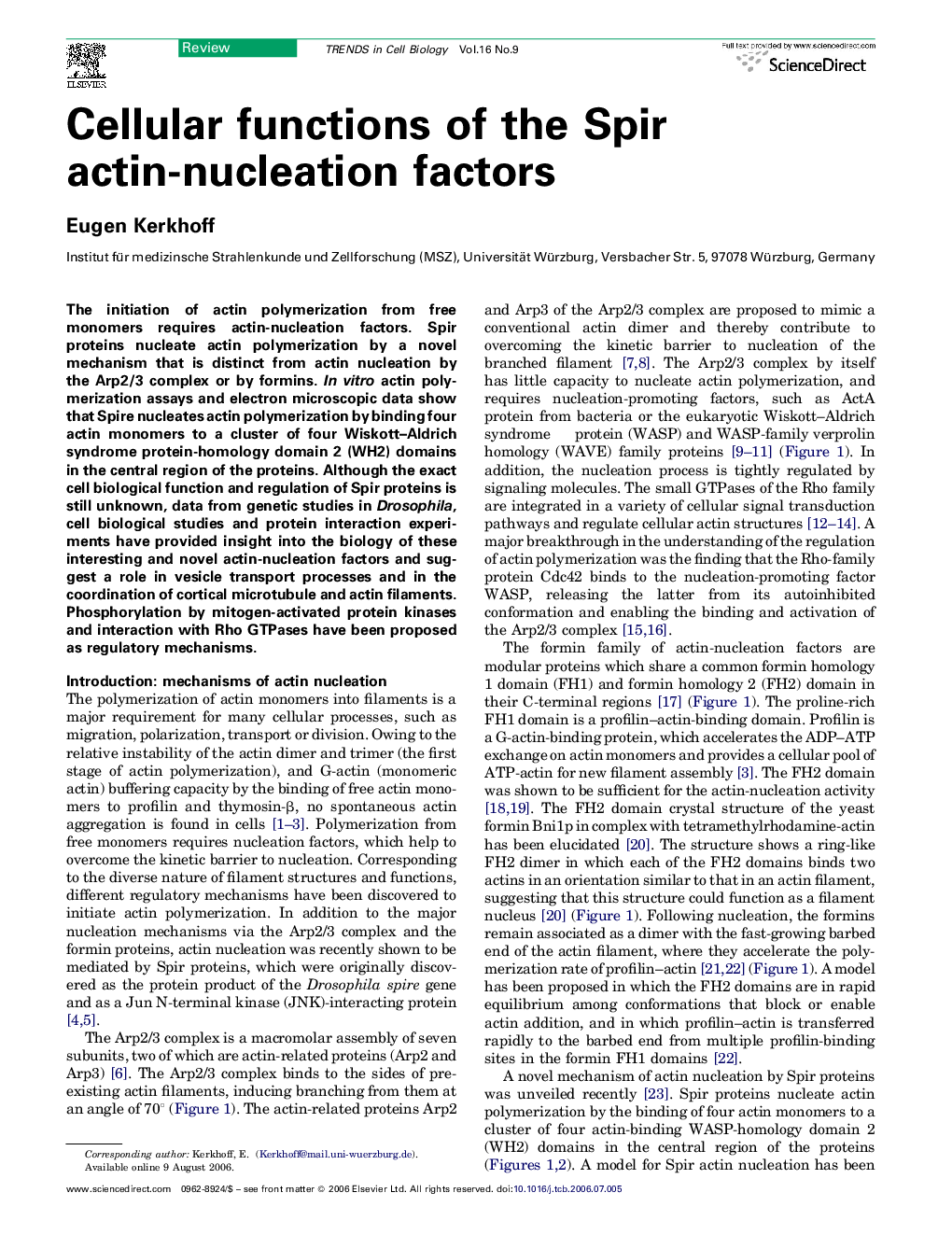| Article ID | Journal | Published Year | Pages | File Type |
|---|---|---|---|---|
| 2205343 | Trends in Cell Biology | 2006 | 7 Pages |
The initiation of actin polymerization from free monomers requires actin-nucleation factors. Spir proteins nucleate actin polymerization by a novel mechanism that is distinct from actin nucleation by the Arp2/3 complex or by formins. In vitro actin polymerization assays and electron microscopic data show that Spire nucleates actin polymerization by binding four actin monomers to a cluster of four Wiskott–Aldrich syndrome protein-homology domain 2 (WH2) domains in the central region of the proteins. Although the exact cell biological function and regulation of Spir proteins is still unknown, data from genetic studies in Drosophila, cell biological studies and protein interaction experiments have provided insight into the biology of these interesting and novel actin-nucleation factors and suggest a role in vesicle transport processes and in the coordination of cortical microtubule and actin filaments. Phosphorylation by mitogen-activated protein kinases and interaction with Rho GTPases have been proposed as regulatory mechanisms.
